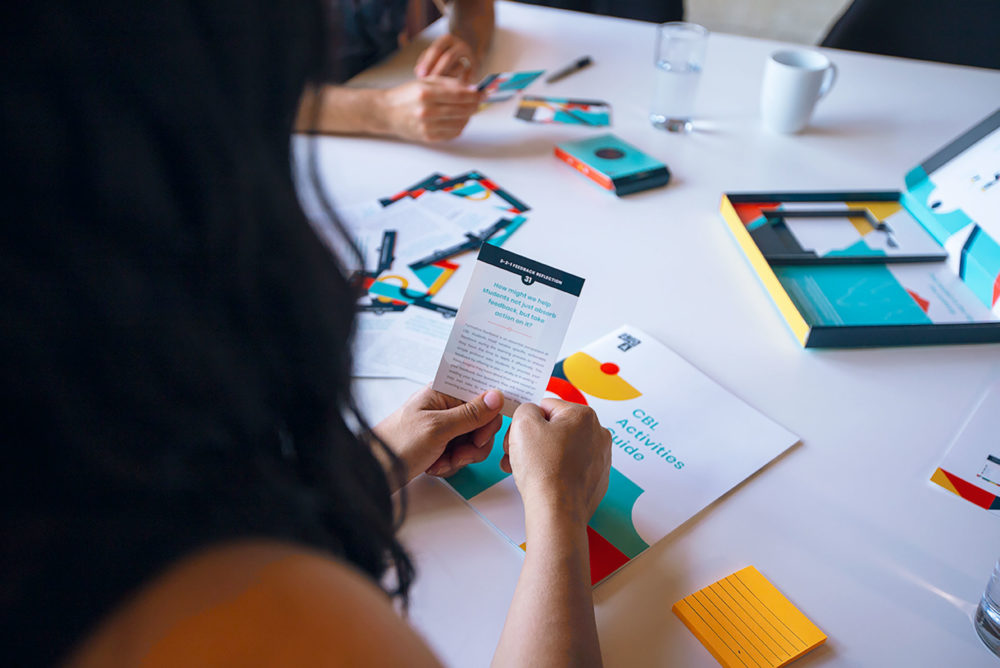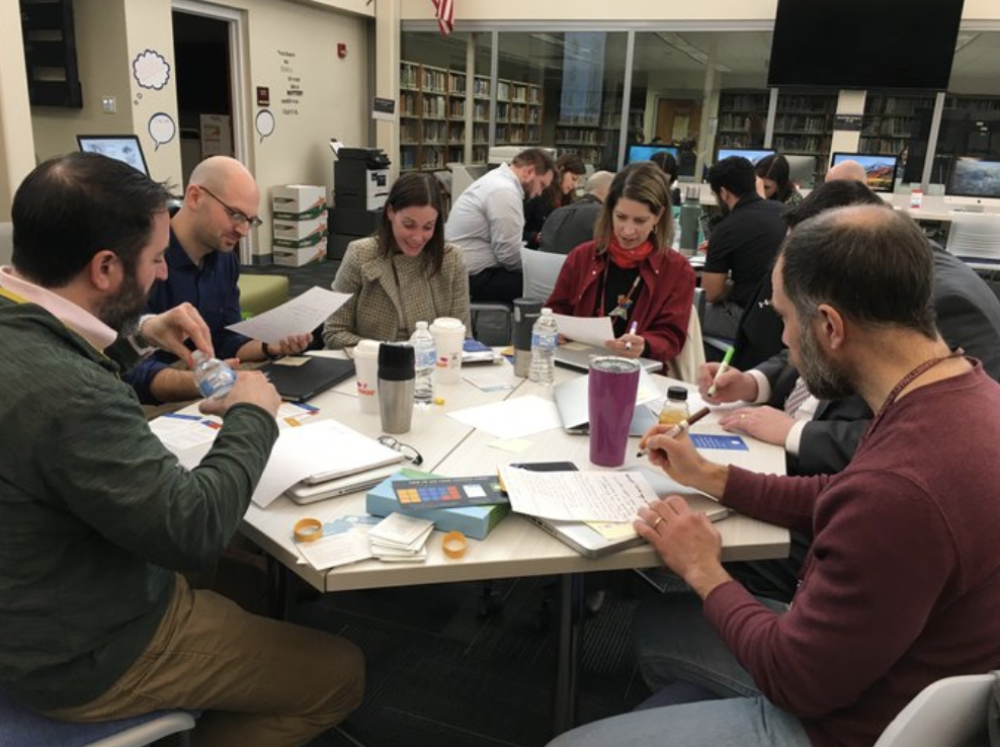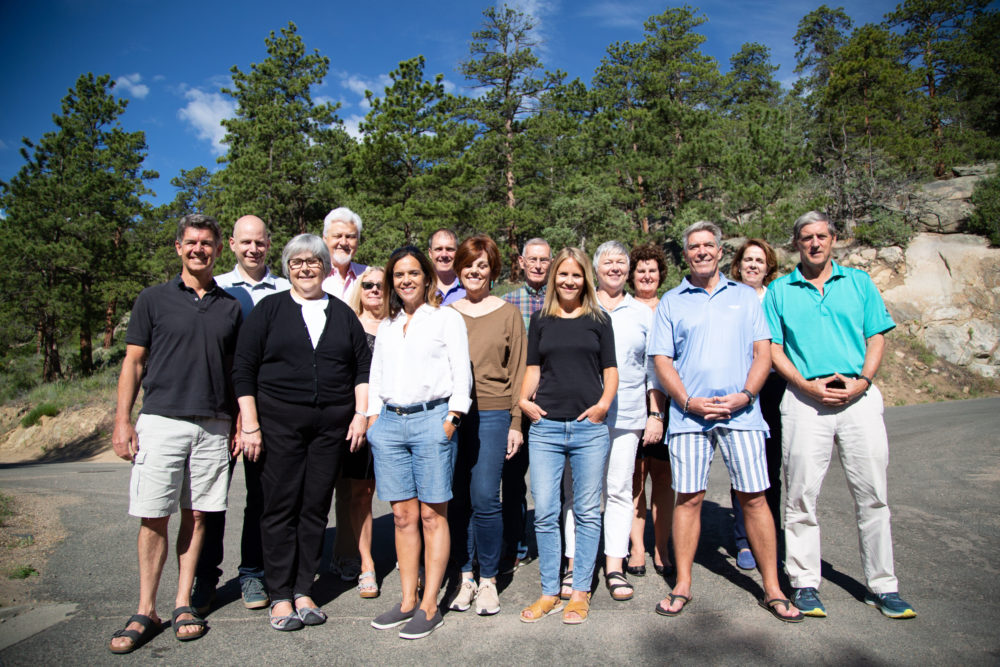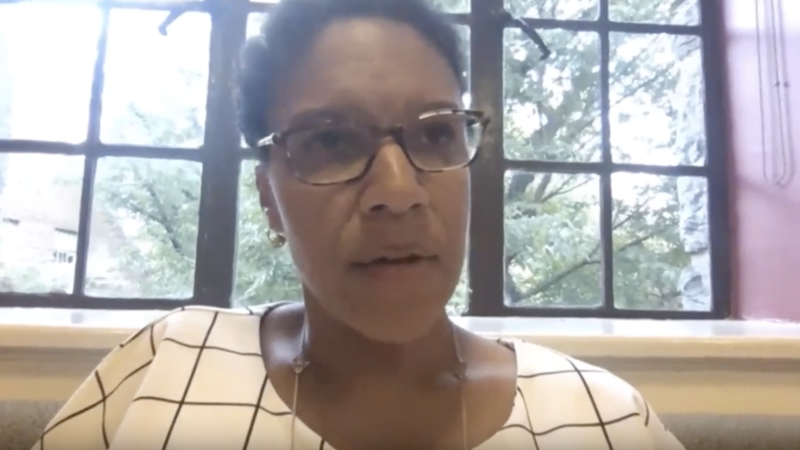2019 Year-in-Review: Five Big Ideas in Professional Learning
Consider this from a Harvard Business Review article on the disruption of higher education: "Success in the future won’t be defined by a degree, but by potential and the ability to learn, apply, and adapt."
We are entering an era where adults, regardless of their field, will need to be committed to lifelong learning or “upskilling.” Educators are no exception to this. The purpose of any professional learning program is to shift educator practice in order to impact student learning. For educators this means increasing skills and honing existing ones. It also means learning new theories and then committing to turn theory into practice. Success for educators, now and in the future, means practicing the ability to learn, apply, and adapt.
Our team recently wrote about four design parameters that can create the conditions needed for impactful professional learning experiences. They are dedicated time for professional learning; on-going, sustainable, job-embedded professional learning; coaching and collaboration; and, personalized pathways. In designing professional learning experiences with the above parameters in mind, we noticed five big ideas in professional learning emerge this year, whether in Atlanta or Amman, San Francisco or Sao Paulo, in-person or online.
5 Big Ideas in Professional Learning in 2019
Nicole Furlonge, panelist in GOA’s Rethinking School course
1) Educator voice and choice drive changes in practice.
At GOA, we describe our professional learning work as relevant and future-focused, dedicated to trusting current practice and strengthening it through rethinking and renewal. As one of our guest panelists in our Rethinking School course, Nicole Furlonge, describes in the video above, innovation is like jazz music, an opportunity to “take what [we] have in hand and to refashion it, remake it, disrupt it, break it apart, play with it, and discover anew.”
Part of our mission at GOA is to reimagine learning to empower educators to thrive in a globally networked society. From our online educator courses to our weeklong Learning Design Summit, we partner with educators from around the world to shift and improve practice in the interest of students. We do this through offering opportunities for choice and platforms for voice. In both our Learning Design Summit and Rethinking School series, educators choose how to navigate through the learning experience - whether through absorbing resources, collaborating with educators from around the world, or through participating in personalized design work. Each educator is encouraged to pursue a pathway that feels most meaningful towards their own practice, classroom, or school and is provided with a forum in which to share, connect, and grow.

2. Designing for student agency clarifies purpose.
We know from research that students learn deeply when they do cognitively complex work that matters to them. The question we’ve been tackling with schools and educators is, “What has to change in teacher practice and school design in order to empower students to make important decisions about their learning?”
Competency-based learning (CBL) offers a framework for answering this question, and much of our work in 2019 supported schools and educators in making the five shifts necessary to adopt CBL. Using our CBL Toolkit as a guide, we partnered with The White Mountain School in aligning their LASR inquiry projects to their Essential Skills and Habits. We supported Chapel Hill Chauncy Hall School, King's Academy, Lakeside School, and Mount Vernon School in translating their new competency architectures into rubrics, learning experiences, and assessments. At the heart of this work is creating relevant, transdisciplinary learning targets that prompt students to reflect on and discuss their own growth, motivating them to drive their own learning.

3. Ongoing coaching and connection leads to deeper learning for educators.
At GOA, one of our guiding principles for our professional learning work is to “leverage collective expertise.” This means that coaching is not something that is done to educators, but rather exists in collaboration with them. For the GOA Faculty, each teacher belongs to a cohort led by a learning design coach. Cohorts and coaches analyze student work together to seek evidence of learning and then identify what’s working and what needs improvement. This reflective and proactive coaching work serves to generate the questions that drive teacher practice forward.
Additionally, this year we saw tremendous value in conducting coaching “Power Hours” over Zoom that allowed small groups of educators to deeply explore a particular topic and then design an experience around it. In our work with The Thacher School and Graded-The American School of Sao Paulo, we learned that it was in the effort to apply theory to practice through design sprints that the meaty questions connected to student learning emerged. We saw the value in creating opportunities to do the work in real time and then giving space for educators to seek out targeted feedback along the way.

4. Instructional design still matters.
Schools are still looking to differentiate and personalize the student learning experience by rethinking traditional classroom structures. There’s an appetite to use instructional design practices to rethink how educators are using time inside and outside of the classroom and to rethink how students engage with content. In our work with Edmund Burke School, French American International School, Friends Academy, Garnet Valley School District, we witnessed firsthand the power of educators identifying a problem of practice and undergoing a design thinking process to discover, interpret, ideate, design, and iterate. What’s key here is that instead of making whole haul changes, educators are analyzing and addressing specific, concrete, relevant problems of practice in manageable chunks.

5. Platforms leverage networks of people around the world to scale new ideas.
A lot of our conversations this year with learning organizations focused on designing and building new courses, platforms, and communities to scale new ideas to a new audience. Mastery Transcript Consortium has identified a new Journeys to Mastery Framework, and in partnership with GOA, has launched a series of five courses mapped to their framework, reaching their global membership of educators. GOA also has the privilege of working with Academy for International School Heads (AISH) on new professional learning offerings for international school leaders. You can read more about this project in the article, Four Elements of Modern Learning for Leaders. GOA has also partnered with American International School Chennai (AISC), Enrollment Management Association (EMA), and Klingenstein Center, Teachers College to connect humans across space and time and to bring exciting professional learning offerings to new audiences.
It has been an extremely fulfilling year of professional learning here at GOA. As we look ahead to 2020, we’re excited to launch our new CBL Online Program, return to Epsicopal High School for our annual Learning Design Summit, and unveil a new slate of additional offerings. Join us!
What do you think are the big ideas in professional learning? Share with us on Twitter @GOALearning.

